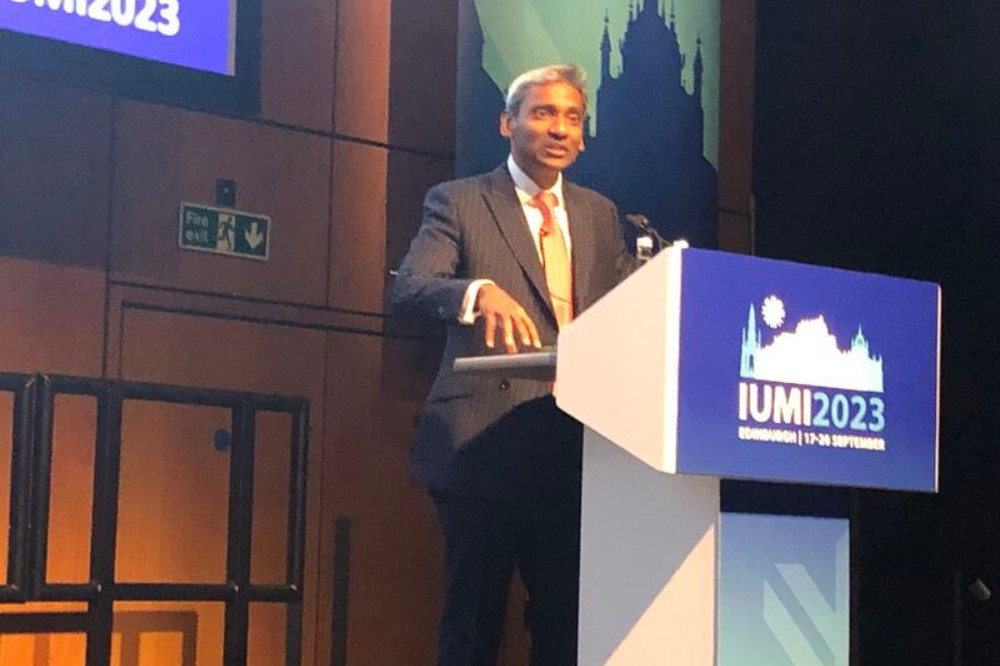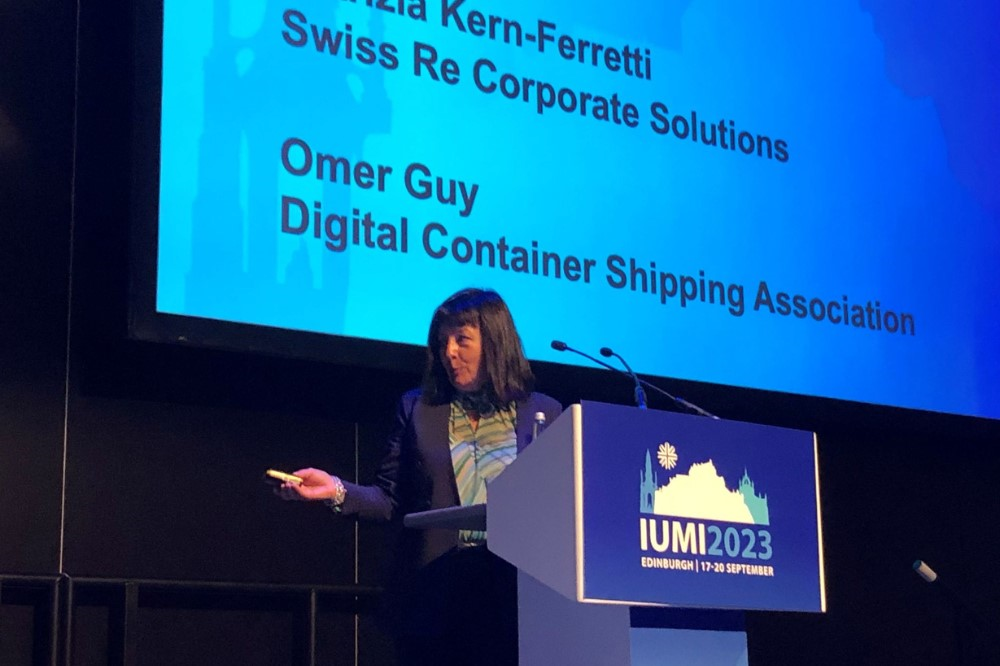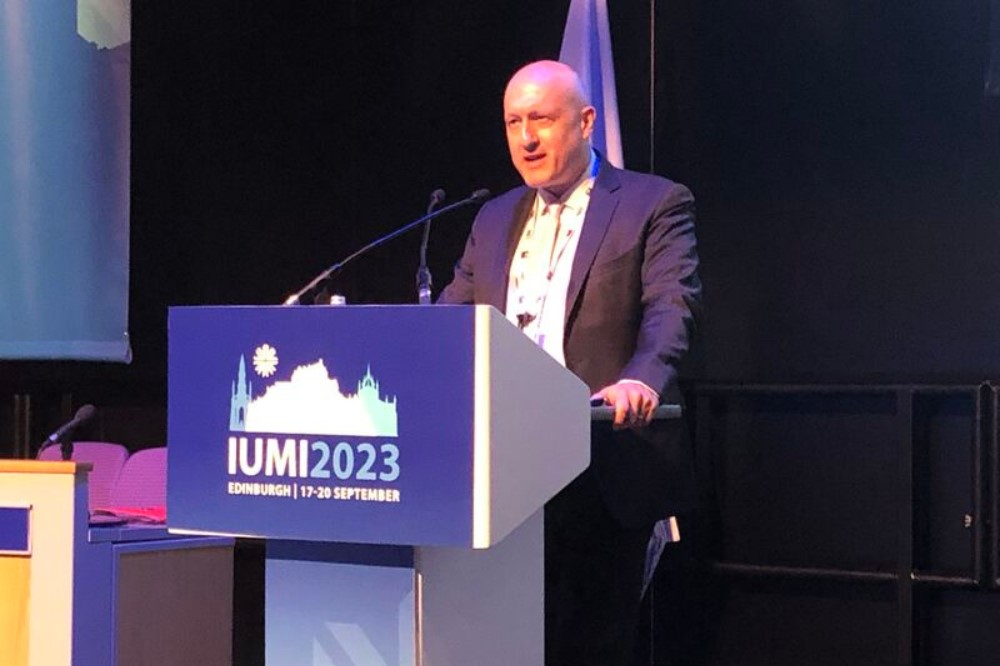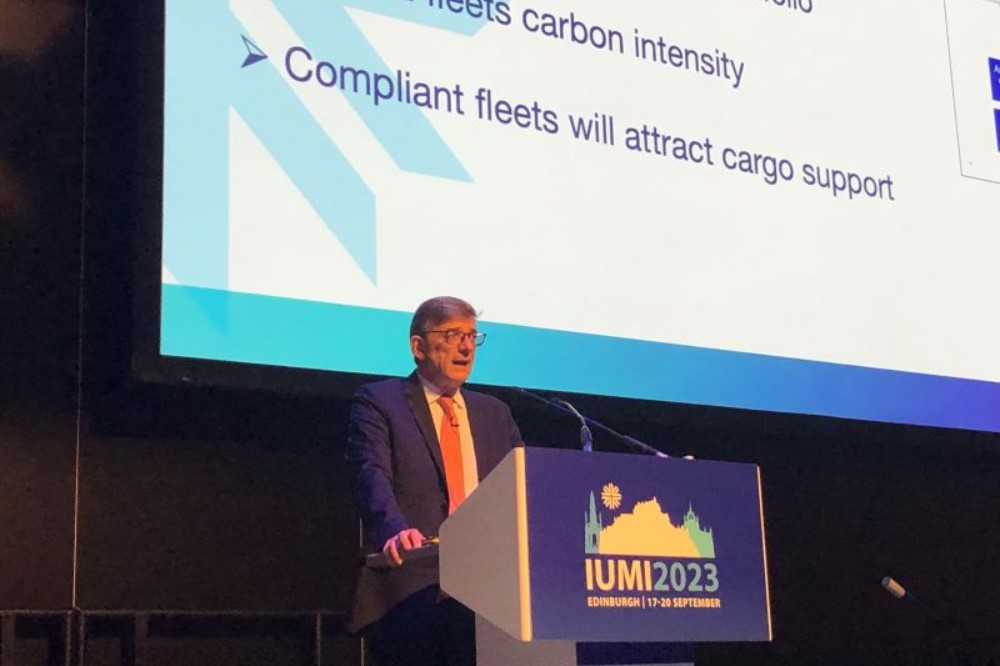Marine urged to adapt as fraud, digitalization, and net-zero ambitions grow

Marine urged to adapt as fraud, digitalization, and net-zero ambitions grow | Insurance Business America
Marine
Marine urged to adapt as fraud, digitalization, and net-zero ambitions grow
IUMI conference tackles the shifting dynamics in the current segment
Marine
By
Kenneth Araullo
The last day of the annual International Union of Marine Insurance (IUMI) conference in Edinburgh, Scotland, much like the previous days before it, tackled the hard questions and challenges facing the segment as it stands today.
One of the featured workshops discussed fraud in the industry, citing a high-profile case that marine insurers were urged to recognise and learn from. At the Legal & Liability Workshop, IUMI chair Charles Fernandez highlighted the Brillante Virtuoso case and took the opportunity to debate several aspects that insurers would find worth considering.
The Brillante Virtuoso case
In July 2011, the Suezmax tanker Brillante Virtuoso, weighing 149,601 DWT and carrying fuel oil valued at approximately US$100 million, set sail from Ukraine to China. During its journey, the vessel reportedly came under attack by Somali pirates off Aden, who allegedly fired rocket-propelled grenades, resulting in a fire in the accommodation block. The crew was successfully rescued by an American warship, and after a few days, the rekindled fire was extinguished, and the vessel was safely towed.

However, subsequent investigations contradicted the initial reports. The warship found no evidence of pirates, and a surveyor named Captain David Mockett, acting on instructions from the hull insurer, found no signs of a rocket attack. Tragically, Captain Mockett was killed by a car bomb in Yemen a few days later.
The vessel was initially purchased for US$46 million, but its value in June 2011 had depreciated to US$13.5 million, despite being insured for US$77 million. The suspicions of foul play by the hull war insurers led to a prolonged court case. In 2019, the High Court in England ruled that an attempted insurance fraud had indeed occurred, implicating the vessel owner, the master, chief engineer, and Poseidon, the Aden-based salvor, in deliberately setting and fuelling the fire on the vessel.
Although the hull war insurers were not obligated to make a payout, the shipowner’s bank had secured mortgagees interest insurance (MII) to act as a backup cover in case they lost the benefits provided by the hull policy. This MII cover also contained a clause preventing the MI insurers from suing the shipowner to recover the loss, even though the shipowner was found guilty of fraud.
“Tragically, the surveyor who first attended the vessel, Captain David Mockett, lost his life and that should not be forgotten. The ship was carrying a large cargo of fuel oil which, if spilt, would have caused a significant environmental disaster. Added to this, although two ships’ officers were implicated, the remainder of the crew were innocent but the onboard fire had the potential to endanger their lives. The key lesson to learn is that underwriters must challenge suspected cases of fraud at the earliest opportunity to ensure wrongdoings are not perpetuated or repeated. By doing this, they might protect lives, livelihoods, the environment and their assureds,” Fernandez said.
He also reflected on the realisation that for some, crime does pay, with industry this time around forking out around US$100 million, and the bank reimbursed.
“A significant salvage claim was paid even though Poseidon, one of the sub-contractors was subsequently implicated in the fraud. The shipowner’s loan was also paid-off. It was the insurers who picked-up the bill even though the High Court ruled that a major insurance fraud had taken place. Individual insurers should learn from this case and take steps to protect themselves, and others, from this sort of crime,” he said.
Capturing the benefits of digitalisation
Digital transformation is making substantial progress across various sectors of global shipping, and marine insurance must be prepared to embrace this shift in order to harness the associated advantages. This has been a focal point of discussion at the conference, with Patrizia Kern-Ferretti, chair of IUMI’s Big Data and Digitalisation Forum, expressing her thoughts on the matter.

“It’s gratifying to see our industry continue to adopt the digitalisation process but there is concern that we might be moving too slowly. Today, we heard from the Digital Container Shipping Association on its progress to implement fully electronic bills of lading. This represents a significant step forward in digitalising the supply chain and marine underwriters must be ready,” Kern-Ferretti said.
Bills of lading (BL) serve as receipts for goods, evidence of carriage contracts, and titles of ownership. They are utilised extensively throughout the global supply chain. During the conference, attendees were briefed on the Digital Container Shipping Association’s efforts to transition from paper-based original BLs to a data-flow system based on DCSA standards.
The association’s members, representing 70% of global container trade, have committed to issuing 50% of their BLs digitally within the next five years and achieving 100% by 2030. This shift would represent a profound change in the way business is presently conducted, with estimated efficiency savings amounting to many billions of dollars. For marine insurers, the benefits are substantial, as underscored by Kern-Ferretti.
“Efficient marine insurance relies heavily on the availability of good-quality data. Fully digitalising bills of lading gives the potential for underwriters to access behavioural data coupled with predictive opportunities arising from AI. In short, the more data we can access, the more analysis and insights we can gather and this will translate into better pricing, overall management, claims handling and loss prevention,” she said.
Adaptable loss prevention measures
The shipping industry continues to evolve, focusing on vessel capacities, environmentally friendly technologies, and modern operational practices. Concurrently, the methods of transporting goods, particularly unitised cargoes, are also undergoing transformations. Inevitably, innovation and change introduce new risks that necessitate comprehension and mitigation through novel or updated loss prevention strategies. Pascal Dubois, chair of IUMI’s Loss Prevention Committee, emphasised this emerging concern.

“The sheer number of containers being carried on ships of 24,000 TEU or more means that, statistically, there is a greater chance of an individual cargo combusting. Sadly, there have been many fire-related incidents on-board large containerships in recent years. Tackling fires on such large vessels is an ongoing concern and a significant body of research is underway to find workable solutions to both fire-fighting and fire prevention. IUMI has been one of the prime-movers at IMO to address this,” Dubois said.
Maritime vehicle transportation has gained significant attention in recent years, the IUMI noted. High-profile incidents like Grande Europa, Felicity Ace, and more recently, Grande California, Grande Costa d’Avorio, and Freemantle Highway underscore the necessity for enhanced and aligned loss prevention measures. Besides the tragic loss of life, these incidents often result in financial losses amounting to hundreds of millions of dollars. However, Pascal Dubois also advocates prudence in assigning blame and urges the industry to rely on science when implementing preventative measures.
“Research shows that EV fires are no more dangerous than those caused by internal combustion engine (ICEV) vehicles – the growth rate, the peak heat release, and the total energy released is no different. That’s because most of the fire’s energy comes from sources within the vehicle, such as plastics, and not the battery. However, we must not ignore the potential for thermal runaway where the battery may self-heat and re-ignite. The risks are not necessarily greater but they are different and this is where we need a new and different approach,” Dubois said.
Dubois also stressed that loss prevention is a virtuous cycle that involves assureds, brokers, underwriters, and regulators.
“We can’t innovate without recognising new and different risks and then implementing adequate loss control measures. Insurance and loss prevention go hand-in-hand – you can’t have one without the other,” he said.
New risks must be understood as shipping moves towards net-zero goals
The recent heightened environmental goals set by the International Maritime Organization (IMO) mark a significant turning point for the shipping industry, subsequently impacting marine insurers to a greater extent. After opening the conference a few days ago, IUMI president Frédéric Denèfle returned in his closing workshop to set the context.

“IUMI welcomes the recent announcement from IMO that GHG emissions from ships will be reduced further. New targets require net-zero emissions by close to 2050 with a 20-30% reduction by 2030 and a 70-80% reduction by 2040 from the 2008 baseline. To achieve this, the industry will need to adopt a series of immediate measures followed by intermediate technologies and, finally, a long-term technology shift. It’s gratifying to see that leading shipowners, supported by charterers, have already made the first steps with some trail-blazing their way to early decarbonisation, he said.
Denèfle also stressed the importance of maintaining pace with all these incoming changes and innovations as it will enable the marine segment to support shipowners in de-risking their operations.
Delegates at the conference were made aware that the transition process had already commenced, with a swift shift towards digitalization of the supply chain to introduce operational efficiencies. Moreover, various onboard energy-saving devices such as route optimisation and propeller/hull energy-saving innovations were being introduced.
As an interim measure, some shipowners were adopting LNG dual-fuel, biofuels, and wind-assisted propulsion. In the long term, zero-emission propulsion options could include ammonia, hydrogen, or methanol. Each of these new technologies would introduce a new set of risks that marine underwriters would need to insure. As the transition progresses, retrofitting will give way to new builds, once again presenting new types of risks.
“With new innovations and a changing risk profile, the need for enhanced information becomes paramount,” Denèfle said. “It will be important for underwriters to receive and analyse data on ESG, economic and technical performance. In the past, we had relied upon historical information and statistics but today, real-time, dynamic data such as weather, geopolitical, regulatory, routing and engine information are all available to us.”
He urged the industry to capitalise on these trends in order to maintain marine’s relevance across the market. Predictive risk management and improvement to risk quality will be key for greater sustainability and profitability for the sector.
The conference also recognised that key risks likely to emerge from the introduction of new GHG technologies would include new onboard hazards, a complex portfolio of GHG emissions, the introduction of new technology systems, and a rebalancing of voyage dynamics and chartering strategies.
“One of our speakers said, ‘transformation involves taking risks and making investments in new technologies,’ which is quite right. But it is the job of marine underwriters to assist all those involved, including shipowners and charterers, to de-risk their operations as far as possible and provide new and innovative insurance products,” Denèfle said.
What are your thoughts on this story? Please feel free to share your comments below.
Related Stories
Keep up with the latest news and events
Join our mailing list, it’s free!






